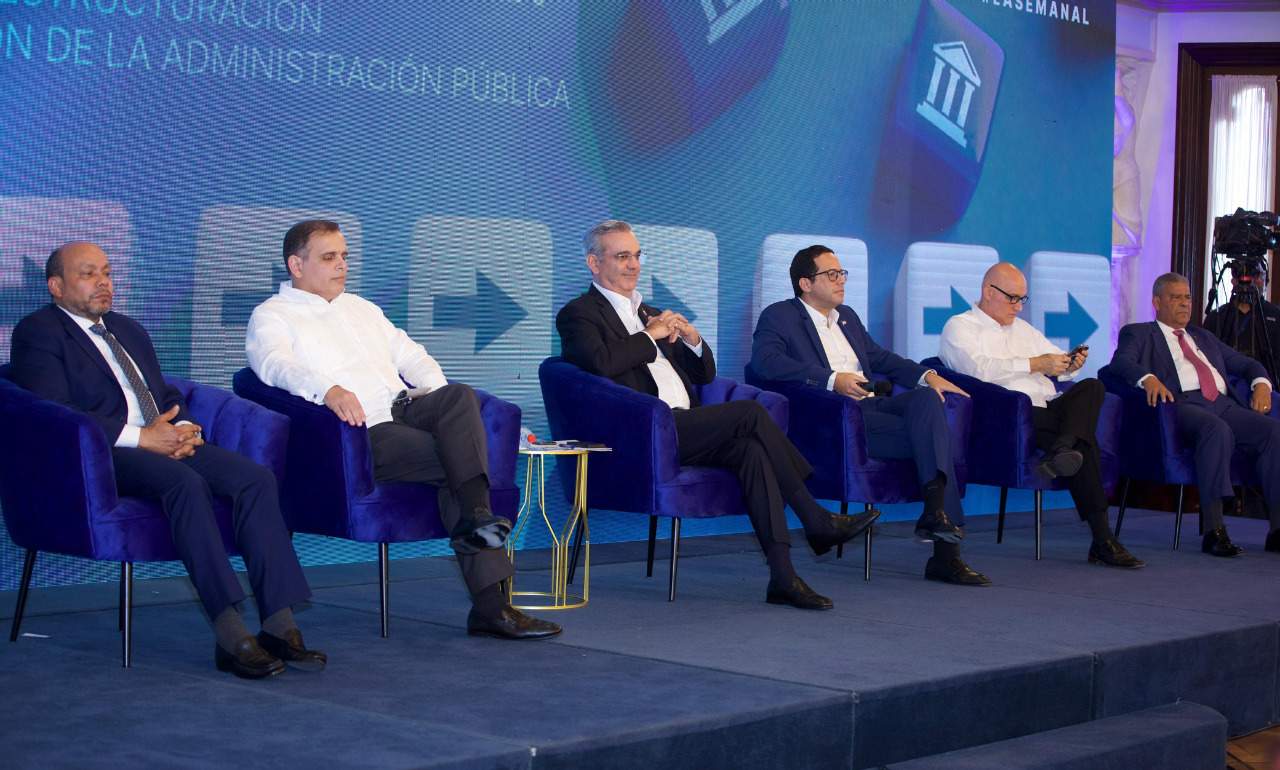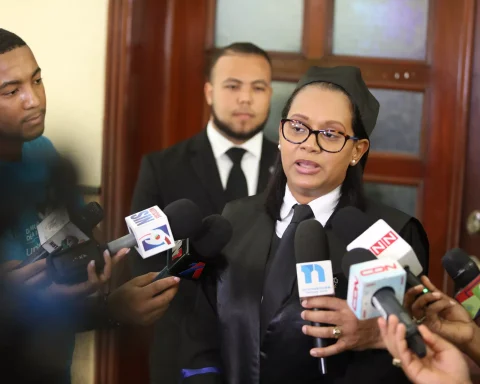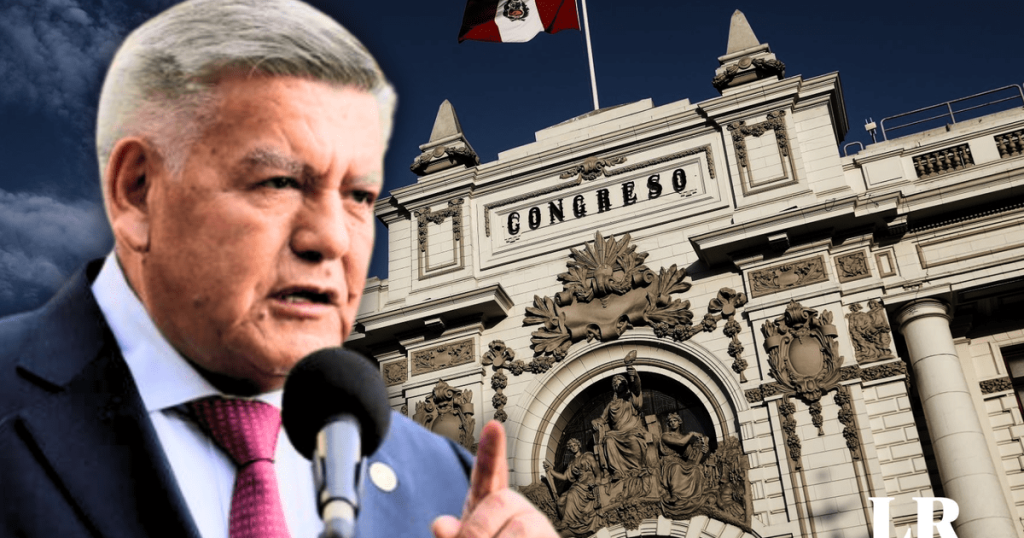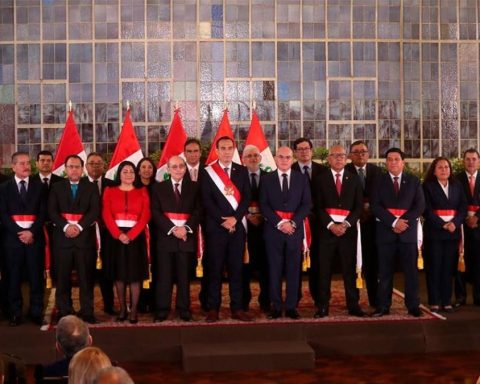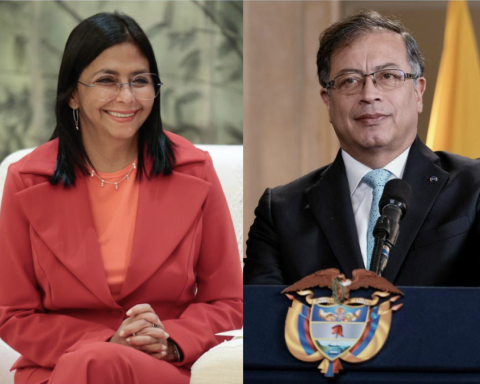Santo Domingo, DR. – After months of studies, consultations, dialogue and evaluation, President Luis Abinader led this Monday the presentation of a second reform for the unification of ministries and other state institutions with the aim of continuing the restructuring and rationalization of public administration.
This proposal also seeks to eliminate duplications in public institutions to be more efficient, coherent and better aligned with government priorities.
The head of state noted that most of the proposals will go to the National Congress to be approved but from the economic point of view “the necessary savings can be made.”
WE RECOMMEND YOU READ:
At the same time, Abinader recalled the first unifications and eliminations carried out during his mandate, citing the merger of the OISOE and the INVI, (today the Ministry of Housing and Buildings), the CEA and the CORDE and the elimination of the Office of the First Lady and Procomunidad.
Goals
The four objectives of this second reform are: the optimization of resources to free up financial and human resources, redirecting them towards critical areas such as health, education and citizen security; improving coordination to reduce dispersion and improve work between agencies.
Likewise, eliminating duplications by eliminating entities whose purpose no longer exists or which can be taken over by other bodies, and finally, reducing bureaucracy in favour of a simpler state structure and a more agile and effective administration.
Key mergers
MESCYT and MINERD
The first proposal for institutional merger presented by Sigmund Freund, Minister of Public Administration, was that of the Ministries of Higher Education, Science and Technology (MESCYT) and Education (MINERD).
This seeks to optimize resources and efficiency in educational spending with a more strategic and comprehensive distribution of resources, strengthening educational quality and reducing costs.
It also aims to integrate the education system, avoiding fragmentation between levels (initial, basic, secondary, higher), which will reduce costs and increase coherence in actions to improve learning.
The aim is also to improve the quality of education by providing a comprehensive approach to education, from basic to higher education, aligning curricula with the demands of the labour market.
Strengthening the national education system is another goal of this merger, aligning education with the country’s priorities in science and technology, promoting regional development and equity in the distribution of resources.
Finally, on the improvement of educational policy: the merger facilitates the development of joint policies to address educational and scientific challenges, improving access to education and strengthening monitoring of student progress and research.
As for the science and technology component of Mescyt, they will be sent to another entity that will devote its efforts to these aspects, including innovation actions.
MEPYD and TREASURY
The merger of the Ministries of Finance and Economy, Planning and Development will create the Ministry of Finance and Economy, to improve coordination and efficiency in public management.
Measures will also be implemented to optimize support areas such as human resources, finance, purchasing, legal, security and communication.
MAPRE
The Administrative Ministry of the Presidency will be abolished and transformed into the Administrative Secretariat under the Presidency, in order to achieve a single coordination in all transversal and support areas, improving human resources, finances and communications.
IAD and Agriculture
The Dominican Agrarian Institute (IAD) will be absorbed by the Ministry of Agriculture, eliminating redundancies and ensuring monitoring of agrarian settlements.
National Council for Agricultural Research
Similarly, the National Council for Agricultural Research will be integrated into the Dominican Institute for Agricultural Investment.
ADESS
The Social Subsidy Administrator (ADESS) It will be merged with the Supérate program to improve coordination and increase efficiency in resource management.
Presidential Commission for Support to Provincial Development, FONVIVIENDA and Happy Family
The Presidential Commission for Support to Provincial Development, FONVIVIENDA and Familia Feliz will merge with the Ministry of Housing, achieving greater centralization and coordination in the managed works.
Economical Dining Rooms
Likewise, the Economic Dining Halls will be integrated into the Presidential Plan to Combat Poverty in order to improve coordination and efficiency, given that both institutions provide similar services to the population.
National Maritime Affairs Authority
The National Maritime Affairs Authority will also merge with the National Aquarium to form what will become the Oceanographic Institute, with the aim of strengthening coordination and improving efficiency in the management of marine and coastal resources.
Strategic Eliminations
Among these eliminations are the Savings Bank for Workers and Monte de Piedad, the Sectoral Commission for the Reform and Modernization of the Agricultural Sector, the Dominican Development Council Abroad (CONDEX), the National Council of Population and Family and the Presidential Commission for Port Modernization and Security.
Likewise, the Business Commission for Mortgage and Trust Development, the International Advisory Commission on Science and Technology and the National Directorate for the Promotion and Development of Crafts (FONDEARTE).
Spending containment measures
For his part, the Minister of Finance, José Manuel (Jochi) Vicente, stated that among these measures is the streamlining of the use of state advertising, concentrating it only on the institutions that must make use of advertising and giving it educational and informative content.
Also, the purchase of non-utility vehicles is prohibited, the expenditure for general events and celebrations of the anniversaries of institutions is prohibited, and the printing of institutional reports is prohibited, which from now on will be digital.
Other measures include freezing the number of public employees in each institution at the levels of August 2024.
The hiring of police, military, medical personnel and teaching staff is exempt from this provision. The MAP may, on an extraordinary basis, approve exemptions depending on the nature and reasonableness of the need. For this purpose, a maximum period of 4 months is granted to carry out the necessary implementations.
Likewise, all trips abroad by the various institutions must have the approval of their governing or affiliated body.
Official delegations may not exceed three persons unless they have written authorization from the governing or affiliated body.
Expected impact
Redistribution of resources: financial and human resources freed up for priority sectors such as health and education.
Greater efficiency and transparency: a simpler, more transparent and results-oriented public administration.
Institutional strengthening: stronger institutions, with clearly defined roles and functions aligned with the country’s needs.
